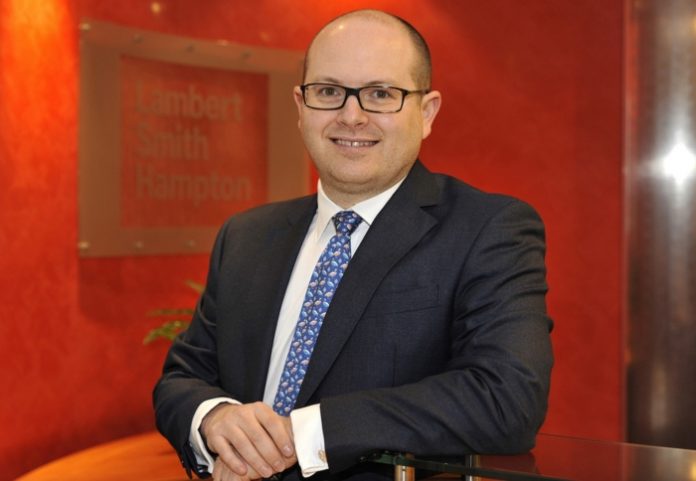Investment in the Midlands commercial property sector was down in Q3 against the five-year average, according to a new report by national property consultancy Lambert Smith Hampton (LSH).
But the year is likely to end on a high note with a number of high profile deals in the region likely to be completed in Q4. Across the UK, total volume in 2017 as a whole is on course to break the £60bn mark for only the third time in history.
The latest UK Investment Transactions (UKIT) report reveals that Q3 was a quieter quarter for the West Midlands for deals at just over £0.5 billion compared with a five-year average of just over £0.6 billion.
In the East Midlands, Q3 transactions accounted for just over £0.2 billion against a five-year average of £0.3 billion.
Despite the slightly weaker quarter, Adam Ramshaw, regional director Birmingham and East Midlands, said sentiment is still very strong, particularly in the West Midlands, thanks to Birmingham’s ever-growing standing as a high-ranking city for investment prospects.
“With HSBC, HS2 and HMRC all committing to locating key headquarters in the city, the appetite for investors in Birmingham remains very positive indeed,” said Adam. “UK institutions and overseas investors are still very keen to invest in the city and the region.
“We are expecting some headline grabbing deals to take place before the end of the year, while there are rumours that some major office buildings in the centre of Birmingham could change hands in the near future, which will end 2017 on a buoyant level.”
The UKIT report reveals that across the whole UK commercial property market investment reached £15.0bn in Q3 2017, up 10% on Q2’s level and 52% higher than the same period in 2016, immediately following the Referendum.
Q3’s volume owed much to a flurry of major transactions, with nine deals in excess of £400m making up a record 33% share of volume. This included the largest ever deal for a single property: LKK Health Products’ £1.28bn acquisition of The Walkie Talkie, London, and a string of portfolio deals such as Aprirose’s £525m purchase of the QHotels portfolio from Bain Capital and TPG Real Estate’s £450m purchase of the Arlington Business Park Portfolio from L&G.
Despite ongoing uncertainty over the UK’s future relationship with the EU, overseas investors continue to show faith in UK property. Q3 largest 15 deals were all purchased by overseas investors, while overseas volume of £8.6bn in Q3 was the highest since Q4 2015. Far Eastern investors continue to command the leading share of activity, accounting for 40% of overseas volume.
Meanwhile, despite encouraging evidence of net inflows returning to the retail funds over recent weeks, institutions were net sellers of UK property for a sixth consecutive quarter in Q3, at £1.2bn, predominantly disposing of offices and retail assets while remaining net buyers of industrial.
Positive occupier market fundamentals continue to drive an insatiable appetite for industrial and logistics assets. At £1.8bn, total industrial volume in Q3 was up 31% on the five-year quarterly average and, should that be repeated in Q4, 2017 will be a record year for the sector, smashing the previous record of £6.7bn in 2014.
Q3’s All Property average transaction yield was 5.57%, seven basis points keener than Q2’s level and the first meaningful movement in average prices since Q2 2016. While average office and retail yields were 29 basis points and 17 basis points lower than Q2, average industrial yields were 36 basis points higher, a likely indication of investors’ increased willingness to move up the risk curve in search of stock.
Ezra Nahome, LSH CEO, said: “An unusually strong summer quarter has really changed the complexion of 2017. With expectations of a strong finish to the year, total volume in 2017 as a whole is on course to break the £60bn mark for only the third time in history.
“Considering all the political turmoil we’ve seen, both the volume of activity and the performance of UK commercial property in 2017 has exceeded even the most optimistic of forecasts from the start of the year. A cheaper pound and the fact that the UK’s occupier markets have held up well in the wake of last year’s Referendum has been crucial to this.
“Industrial yields have come to resemble those historically associated with retail assets, such is the clamour for exposure and perception of growth in the sector. With industrial returns considerably outperforming other sectors, it’s hardly surprising that some investors have opted to capitalise on this demand and bring stock to the market.”





















